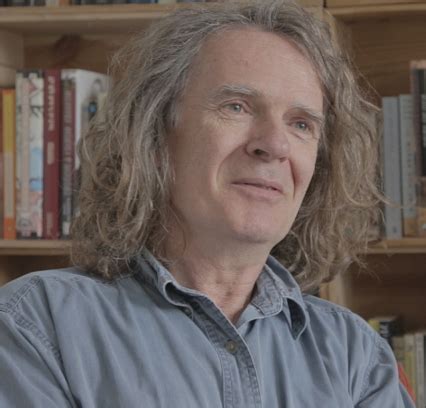A Quote by Thomas Carlyle
A greater number of God's creatures believe in Mahomet's word at this hour than in any other word whatever. Are we to suppose that it was a miserable piece of spiritual legerdemain, this which so many creatures of the almighty have lived by and died by?
Related Quotes
We must make a great difference between God's Word and the word of man. A man's word is a little sound, that flies into the air, and soon vanishes; but the Word of God is greater than heaven and earth, yea, greater than death and hell, for it forms part of the power of God, and endures everlastingly.
We are in love with the word. We are proud of it. The word precedes the formation of the state. The word comes to us from every avatar of early human existence. As writers, we are obliged more than others to keep our lives attached to the primitive power of the word. From India, out of the Vedas, we still hear: On the spoken word, all the gods depend, all beasts and men; in the world live all creatures...The word is the name of the divine world.
It is an insult to God to believe in God. For on the one hand it is to suppose that he has perpetrated acts of incalculable cruelty. On the other, it is to suppose that he has perversely given his human creatures an instrument - their intellect - which must inevitably lead them, if they are dispassionate and honest, to deny his existence. It is tempting to conclude that if he exists, it is the atheists and agnostics that he loves best, among those with any pretensions to education. For they are the ones who have taken him most seriously.
To admit the existence of a need in God is to admit incompleteness in the divine Being. Need is a creature-word and cannot be spoken of the Creator. God has a voluntary relationg to everything He has made, but He has no Necessary relation to anything outside of Himself. His interest in His creatures arises from His sovereign good pleasure, not from any need those creatures can supply nor from any completeness they can dring to Him who is complete in himself.
Because the divine goodness could not be adequately represented by one creature alone, God produced many and diverse creatures, that what was wanting in one in the representation of the divine goodness might be supplied by another. For goodness, which in God is simple and uniform, in creatures is manifold and divided. Thus the whole universe together participates in the divine goodness more perfectly and represents it better than any single creature.
The reading of the word of God should be performed in solitude, in order that the whole mind of the reader might be plunged into the truths of the Holy Scripture, and that from this he might receive warmth, which in solitude produces tears; from these a man is wholly warmed and is filled with spiritual gifts, which rejoice the mind and heart more than any word.
Man! The most complex of creatures, and for this reason the most dependant of creatures. On everything that has formed you, you may depend. Do not balk at this apparent slavery....a debtor to many, you pay for your advantages by the same number of dependencies. Understand that independence is a form of poverty; that many things claim you, that many also claim kinship with you.
We can mention only one point (which experience confirms), namely, that next to the Word of God, music deserves the highest praise. No greater commendation than this can be found — at least not by us. After all, the gift of language combined with the gift of song was only given to man to let him know that he should praise God with both word and music, namely, by proclaiming [the Word of God] through music.
Creation is thus God's presence in creatures. The Greek Orthodox theologian Philip Sherrard has written that "Creation is nothing less than the manifestation of God's hidden Being." This means that we and all other creatures live by a sanctity that is inexpressibly intimate, for to every creature, the gift of life is a portion of the breath and spirit of God. (pg. 308, Christianity and the Survival of Creation)








































